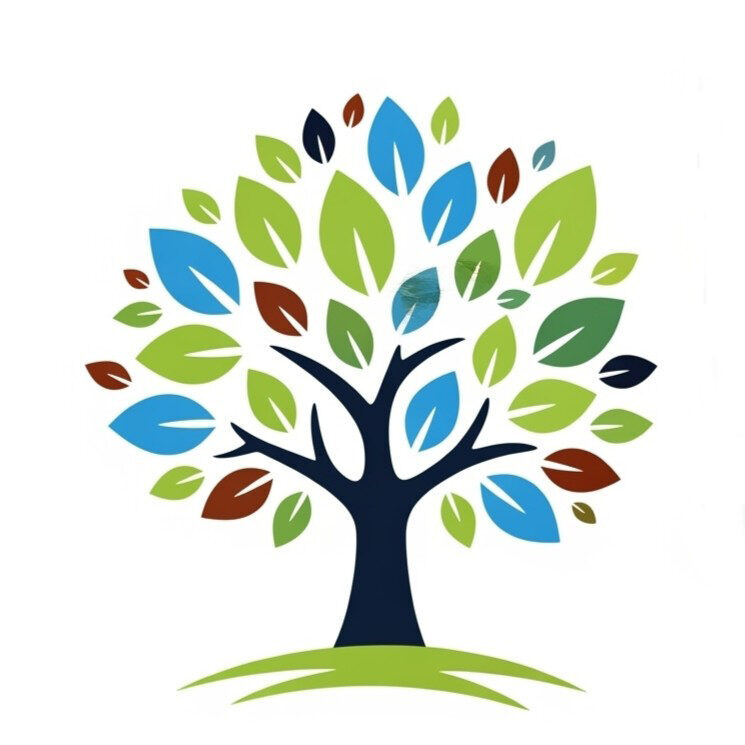Project
Citizen Science in the Library
HELLO, MEET TEAM EnGage!
Our Challenge
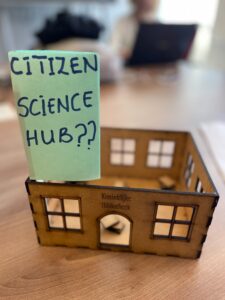
The aim of citizen science in the library is to activate an active, skillful and resilient movement in a society which is informative through participation. Our task as a team is to design an hybrid citizen science hub that will foster this active movement and encourage participation. What can we possibly uncover from the public relating to their motivation, curiosity, needs and understanding of what citizen science has to offer? How can we use this information received to create a platform that inspire participation and bring about sustainable involvement in research. To come up with an efficient design, we seek to ask the following questions;
- What is the joint impact mission?
- Who is the target audience?
- Who is most likely to be enthusiastic about participating in research?
- How do we reach and serve this audience online and offline?
- How do we get past the usual suspects (the involved citizens) and ensure that we reach a wider audience
- What is the role of the local library as a CS hub?
- What are the requirements and expectations from the local library?
- How do we connect the various organizations and residents?
- What are current barriers for the public to participate in Citizen Science (CS) and how do we lower these thresholds?
The Problem
Citizen science is an important resource for democratizing access to research information. Professional scientists all over the world benefit immensely to the contributions and collaborations of citizens in scientific projects. However, more participation from the general public in citizen science is required so that data from various subjects across locations can be utilized.
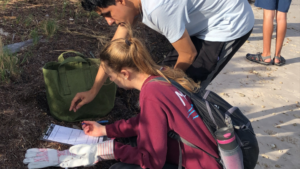
Currently, majority of participants in citizen science projects are people who are curious in doing research; meaning there is a real need to attract the unaware and uninterested who are a significant part of the population.
Our Design Thinking
Design thinking is a characteristic that enables a systematic process which teaches and extract techniques to solve problems in an innovative way. Typically it is an iterative process which seeks to understand the users challenge or barriers, redefine the problems associated with the challenge and create innovative solutions which can be prototyped and tested; the five phases includes; Empathize, Define, Ideate, Prototype and Test.
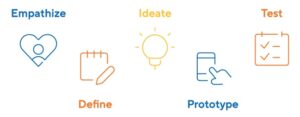
So far we have been able to understand peoples mindset towards science activities in general and specifically within the context of citizen science, also we have defined the problems associated with the challenge which also meant falling in love with the problem to the extent of having a concrete understanding of what it entails while also mapping out areas that we will work towards going forward in this project.
In sprint 1, using the DMT toolkit, our methods included reviewing relevant literature, desk research, observations and survey at the OBA, Amsterdam and field trip to Wageningen’s Stadslab, one of the existing citizen science initiatives in the Netherlands to have a better understanding of its approaches. For sprint 2, we continued with desk research, designed need based profiles and went for field trips to the two other initiatives CurioUs, Groningen and FutureLab, Tilburg for more insights on their approaches and challenges. With this we were able to compare and contrast the approaches of the three existing citizen science hubs.
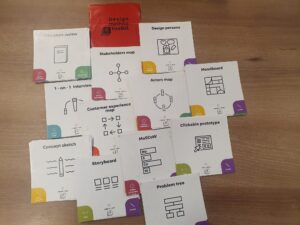
For sprint 3, we tested the need based profiles designed in the previous sprint and came up with finding which informed future scenarios. In sprint 4, using our future scenarios and previous research we designed an approach in the form of a service blueprint for all public libraries. Sprint 5 was more about preparations for the showcase and refining our prototypes from the previous sprint. A round up of all our methods across the sprints are shown;
As with the problem tree shown below we depicted a relationships between barriers to participation in citizen science and the impacts of participation.
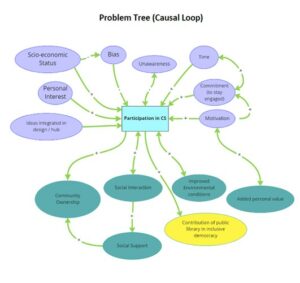
Kick Off and Making of a Conversational Object
We kicked off the challenge by seeking clarity of the problem and what is expected of us as a team. In order to strike up conversation on the project topic, the team conducted a survey by asking the general public if they are familiar with the term citizen science. Interestingly, 83% of our respondents say they don’t know what citizen science is, while approximately 17% say they know what it means.
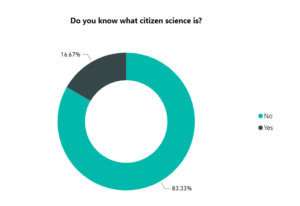
From this survey, we were able to conclude that the term and concept of “citizen science” is not very well known to the general public.
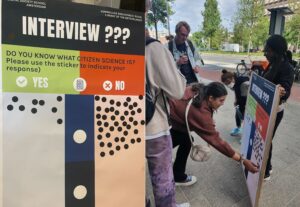
Image: Team EnGage carrying out the survey.
To show our project partners and the DSS community what we have learnt about citizen science within that short period, we performed a role play to further start a conversation on the topic.
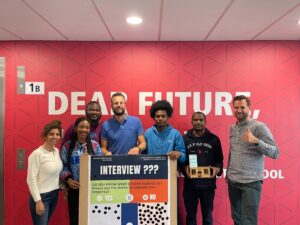
Survey at OBA
The team visited the public library at Amsterdam to conduct a survey and understand the public’s perception and interests about the library in general and as it relates to citizen science. The result of the survey is shown below;
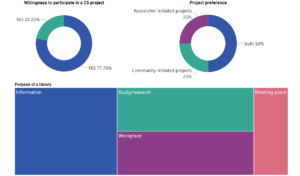
Learn more about our project
- Read our sprint 1 and 2 insights
- Read our sprint 3 insights on the future of a citizen science hub
- Read about our final product
Sustainable Development Goals (SDG)
The SDG according to the United Nations are the blueprint to achieve a sustainable and better future for all irrespective of race, gender and religious affiliations. Our challenge therefore focuses on the following sustainable development goals; Quality Education, Sustainable Cities and Communities, Good Health and Well Being, Climate Action and Equality, Life on Land.
Through citizen science knowledge is shared and transferred by participation, the research carried out by persons and communities goes a long way into bringing about sustainability in our environments including good health and wellbeing as a result of data and solutions gotten through scientific research.
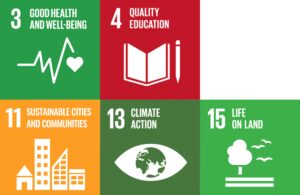
Project Team
- Jane Data Halliday: Researcher |Public Health Professional |Project Management | Linkedin
- AbdulRasheed Musa: Engineer | Data enthusiast | LinkedIn
- Marzi Jafari: Commercial Law Professional | Junior UX Designer | LinkedIn
- Ekundayo Asuni: Renewable Energy Professional and Educator | Aspiring Author | LinkedIn
- Abdulmubarik Sumani: Researcher | Economist | Mathematician | LinkedIn
